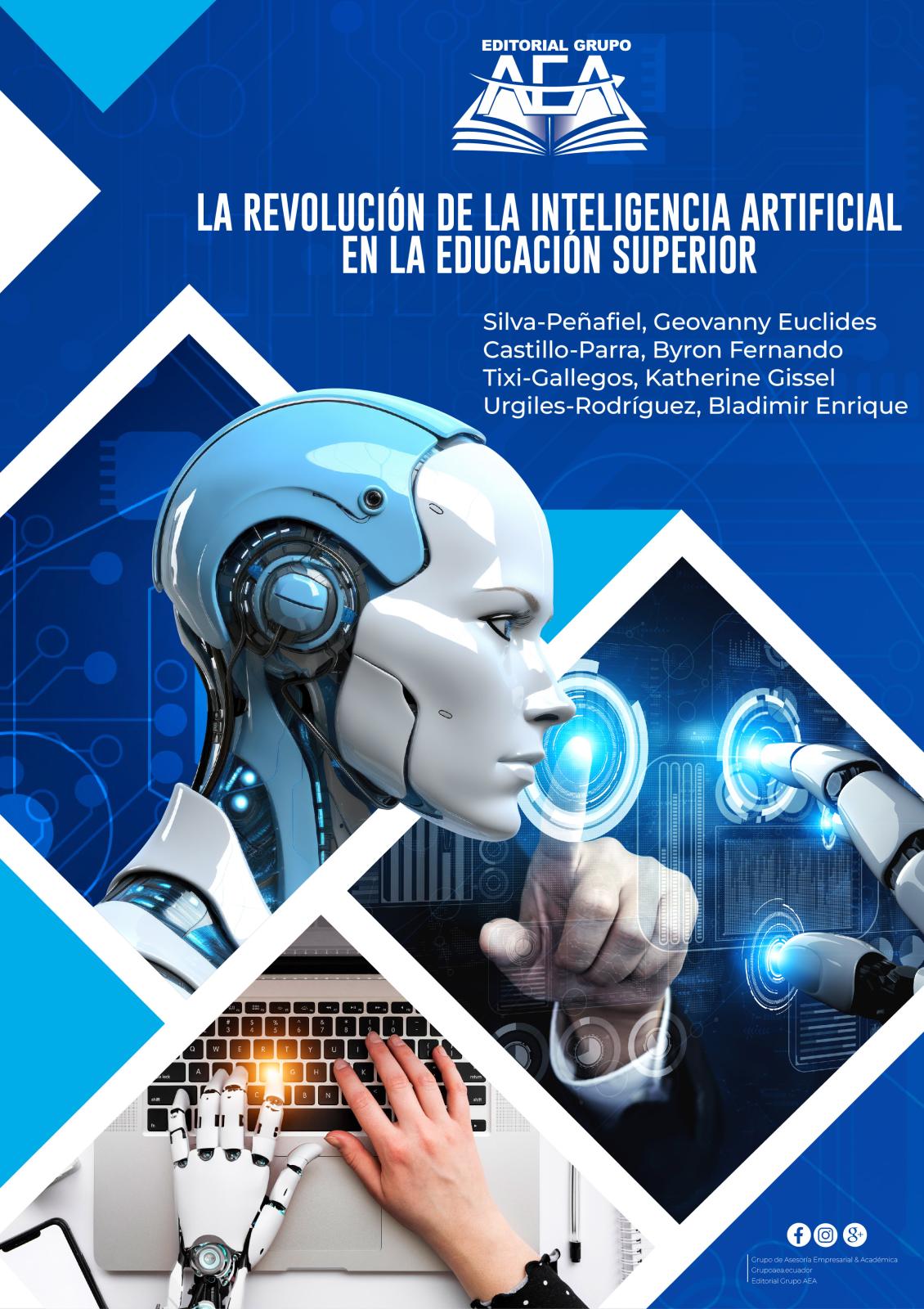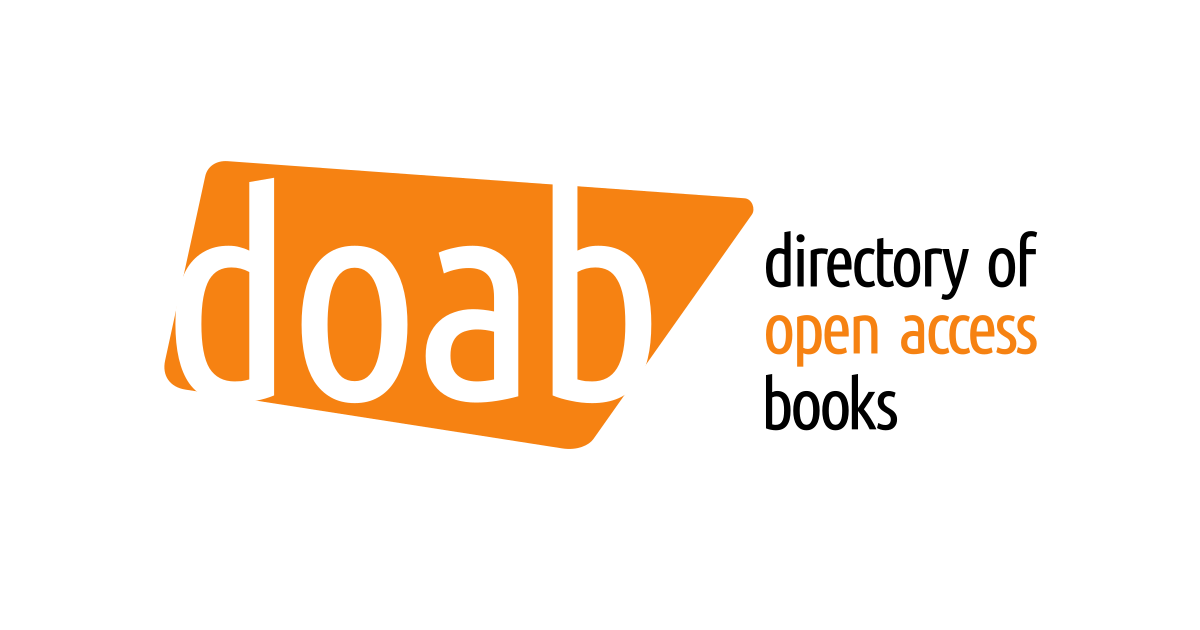La Revolución de la Inteligencia Artificial en la Educación Superior
Palabras clave:
Inteligencia Artificial, Educación Superior, Ética en IA, Tecnologías Emergentes, Aprendizaje AdaptativoSinopsis
Se analiza el impacto transformador de la inteligencia artificial (IA) en la educación superior, destacando las innovaciones tecnológicas y sus aplicaciones prácticas. Se enfoca en cómo la IA está redefiniendo los métodos de enseñanza y aprendizaje, ofreciendo personalización y eficiencia en los procesos educativos. En los primeros capítulos, se expone la evolución y las definiciones fundamentales de la IA, subrayando su creciente integración en la educación y cómo esta tecnología promete personalizar la experiencia de aprendizaje, adaptando los contenidos a las necesidades individuales de los estudiantes. Además, se examinan los sistemas de gestión del aprendizaje impulsados por IA, que facilitan una instrucción adaptativa y personalizada, y las herramientas de evaluación y retroalimentación automatizada, que proporcionan análisis instantáneos y comentarios personalizados. Se discuten los desafíos éticos y legales asociados, especialmente en términos de privacidad y seguridad de los datos, junto con la necesidad de un marco ético para el uso responsable de la IA en entornos educativos. Los capítulos finales abordan casos de estudio y aplicaciones prácticas de la IA en la educación superior, resaltando implementaciones exitosas y lecciones aprendidas que podrían guiar futuras investigaciones y desarrollos en el campo.
Citas
Abrahamson, D., Nathan, M. J., Williams-Pierce, C., Walkington, C., Ottmar, E. R., Soto, H., & Alibali, M. W. (2020). The future of embodied design for mathematics teaching and learning. Frontiers in education, 5. https://doi.org/10.3389/feduc.2020.00147
Aparicio Gómez, W. O., & Figueroa Molina, R. E. (2023). Incidencia de la Inteligencia Artificial en la educación. Educatio Siglo XXI. https://doi.org/10.6018/educatio.555681
Bessen, J. E., Impink, S., Seamans, R., & Reichensperger, L. (2018). The business of AI startups. SSRN Electronic Journal. https://doi.org/10.2139/ssrn.3293275
Buckingham Shum, S., Ferguson, R., & Martinez-Maldonado, R. (2019). Human-Centred Learning Analytics. Journal of learning analytics, 6(2). https://doi.org/10.18608/jla.2019.62.1
Carnegie Mellon University. (2023). Generative AI Tools FAQ - Eberly center - Carnegie Mellon university. Cmu.edu. https://www.cmu.edu/teaching/technology/aitools/index.html
Chen, X., Zou, D., Xie, H., Cheng, G., & Liu, C. (2022). Two Decades of Artificial Intelligence in Education: Contributors, Collaborations, Research Topics, Challenges, and Future Directions. Educational Technology & Society.
Colom, A. (2020). The Digital Divide: By Jan van Dijk, Cambridge, Polity Press, 2020, 208 pp., £17.99 (paperback), ISBN: 978-1-509-534456. Information, Communication and Society, 23(11), 1706–1708. https://doi.org/10.1080/1369118x.2020.1781916
Crompton, H., & Burke, D. (2023). Artificial intelligence in higher education: the state of the field. International Journal of Educational Technology in Higher Education, 20(1), 1–22. https://doi.org/10.1186/s41239-023-00392-8
Dichev, C., & Dicheva, D. (2017). Gamifying education: what is known, what is believed and what remains uncertain: a critical review. International Journal of Educational Technology in Higher Education, 14(1). https://doi.org/10.1186/s41239-017-0042-5
Dietz-Uhler, B., & Hurn, J. E. (2013). Using learning analytics to predict (and improve) student success: a faculty perspective. Journal of Interactive Online Learning, 12(1), 17–26.
European Education Area. (2022). Ethical guidelines on the use of artificial intelligence and data in teaching and learning for educators. European Education Area. https://education.ec.europa.eu/news/ethical-guidelines-on-the-use-of-artificial-intelligence-and-data-in-teaching-and-learning-for-educators
Gasevic, D., Siemens, G., & Dawson, S. (2015). Preparing for the digital university: a review of the history and current state of distance, blended, and online learning. Unpublished. https://doi.org/10.13140/RG.2.1.3515.8483
Giró-Gracia, X., & Sancho-Gil, J. M. (2022). La Inteligencia Artificial en la educación: Big data, cajas negras y solucionismo tecnológico. Revista Latinoamericana de Tecnología Educativa. https://doi.org/10.17398/1695-288X.21.1.129
Greenhow, C., & Lewin, C. (2016). Social media and education: reconceptualizing the boundaries of formal and informal learning. Learning, Media and Technology, 41(1), 6–30. https://doi.org/10.1080/17439884.2015.1064954
Guan, C., Mou, J., & Jiang, Z. (2020). Artificial intelligence innovation in education: A twenty-year data-driven historical analysis. International Journal of Innovation Studies.
Hattie, J., & Timperley, H. (2007). The Power of Feedback. Review of educational research, 77(1), 81–112. http://www.jstor.org/stable/4624888
Henrie, C. R., Bodily, R., Manwaring, K. C., & Graham, C. R. (2015). Exploring intensive longitudinal measures of student engagement in blended learning. The International Review of Research in Open and Distributed Learning, 16(3). https://doi.org/10.19173/irrodl.v16i3.2015
Hirschberg, J., & Manning, C. D. (2015). Advances in natural language processing. Science, 349(6245), 261-266. https://doi.org/10.1126/science.aaa8685
Holmes, W., Bialik, M., & Fadel, C. (2019). Artificial intelligence in education: Promises and implications for teaching and learning. Independently Published.
Jordan, M. I., & Mitchell, T. M. (2015). Machine learning: Trends, perspectives, and prospects. Science, 349(6245), 255-260. https://doi.org/10.1126/science.aaa8415
Knight, S., Wise, A., & Ochoa, X. (2019). Fostering an impactful field of Learning Analytics. Journal of learning analytics, 6(3). https://doi.org/10.18608/jla.2019.63.1
LeCun, Y., Bengio, Y., & Hinton, G. (2015). Deep learning. Nature, 521(7553), 436-444. https://doi.org/10.1038/nature14539
Luckin, R., & Holmes, W. (2016). Intelligence Unleashed: An argument for AI in Education. 60. https://discovery.ucl.ac.uk/id/eprint/1475756
Marbouti, F., Diefes-Dux, H. A., & Madhavan, K. (2016). Models for early prediction of at-risk students in a course using standards-based grading. Computers & Education, 103, 1–15. https://doi.org/10.1016/j.compedu.2016.09.005
Microsoft Garage. (2018). Seeing AI. Microsoft Garage. https://www.microsoft.com/en-us/garage/wall-of-fame/seeing-ai/
MIT Media Lab. (2023). ScratchJr. MIT Media Lab. https://www.media.mit.edu/projects/scratchjr/overview/
Mutchler, L. A., & Warkentin, M. (2020). Experience matters: The role of vicarious experience in secure actions. Journal of database management, 31(2), 1–20. https://doi.org/10.4018/jdm.2020040101
Pisica, A. I., Edu, T., Zaharia, R. M., & Zaharia, R. (2023). Implementing Artificial Intelligence in Higher Education: Pros and cons from the perspectives of academics. Societies (Basel, Switzerland), 13(5), 118. https://doi.org/10.3390/soc13050118
Popenici, S. A. D., & Kerr, S. (2017). Exploring the impact of artificial intelligence on teaching and learning in higher education. Research and Practice in Technology Enhanced Learning, 12(1), 1–13. https://doi.org/10.1186/s41039-017-0062-8
Radianti, J., Majchrzak, T. A., Fromm, J., & Wohlgenannt, I. (2020). A systematic review of immersive virtual reality applications for higher education: Design elements, lessons learned, and research agenda. Computers & Education, 147(103778), 103778. https://doi.org/10.1016/j.compedu.2019.103778
Rainie, L., & Anderson, J. (2017). The Future of Jobs and Jobs Training. https://www.pewresearch.org/internet/2017/05/03/the-future-of-jobs-and-jobs-training/
Russell, S. J., & Norvig, P. (2016). Artificial intelligence: A modern approach (3rd ed.). Pearson.
Shamkuwar, M., Jindal, P., More, R., Patil, P., & Mahamuni, P. (2023). Artificial intelligence and higher education: a systematic visualizations based review. Journal of E-Learning and Knowledge Society, 19(3). https://doi.org/10.20368/1971-8829/1135857
Sherafati, N., Largani, F. M., & Amini, S. (2020). Exploring the effect of computer-mediated teacher feedback on the writing achievement of Iranian EFL learners: Does motivation count? Education and Information Technologies, 25(5), 4591–4613. https://doi.org/10.1007/s10639-020-10177-5
Shum, S. B., Knight, S., McNamara, D., Allen, L., Bektik, D., & Crossley, S. (2016). Critical perspectives on writing analytics. Proceedings of the Sixth International Conference on Learning Analytics & Knowledge - LAK ’16.
Stahl, B. C. (2021). Ethical Issues of AI. En SpringerBriefs in Research and Innovation Governance (pp. 35–53). Springer International Publishing.
Teemu, R., & Mehtälä, M. (2019). Elements of AI. University of Helsinki. https://www.elementsofai.com/
Thongprasit, J., & Wannapiroon, P. (2022). Framework of Artificial Intelligence learning platform for education. International education studies, 15(1), 76. https://doi.org/10.5539/ies.v15n1p76
UNESCO. (2021). Draft text of the Recommendation on the Ethics of Artificial Intelligence. Intergovernmental Meeting of Experts (Category II) related to a Draft Recommendation on the Ethics of Artificial Intelligence, online, 2021. https://unesdoc.unesco.org/ark:/48223/pf0000377897
Wachter, S., Mittelstadt, B., & Russell, C. (2021). Why fairness cannot be automated: Bridging the gap between EU non-discrimination law and AI. Computer Law and Security Report, 41(105567), 105567. https://doi.org/10.1016/j.clsr.2021.105567
Xie, K., & Ke, F. (2011). The role of students’ motivation in peer-moderated asynchronous online discussions: Motivation in peer-moderated discussions. British Journal of Educational Technology: Journal of the Council for Educational Technology, 42(6), 916–930. https://doi.org/10.1111/j.1467-8535.2010.01140.x
Zawacki-Richter, O., Marín, V. I., Bond, M., & Gouverneur, F. (2019). Systematic review of research on artificial intelligence applications in higher education – where are the educators? International Journal of Educational Technology in Higher Education, 16(1). https://doi.org/10.1186/s41239-019-0171-0
Zhai, X., Chu, X., Chai, C. S., Jong, M. S. Y., Istenic, A., Spector, M., Liu, J.-B., Yuan, J., & Li, Y. (2021). A Review of Artificial Intelligence (AI) in Education from 2010 to 2020. Complexity. https://doi.org/10.1155/2021/8812542
Zhai, X., Chu, X., Chai, C. S., Jong, M. S. Y., Istenic, A., Spector, M., Liu, J.-B., Yuan, J., & Li, Y. (2021). A Review of Artificial Intelligence (AI) in Education from 2010 to 2020. Complexity.
Zheng, S., Rosson, M. B., Shih, P. C., & Carroll, J. M. (2015). Understanding student motivation, behaviors and perceptions in MOOCs. Proceedings of the 18th ACM Conference on Computer Supported Cooperative Work & Social Computing.
Zhou, L., Pan, S., Wang, J., & Vasilakos, A. V. (2017). Machine learning on big data: Opportunities and challenges. Neurocomputing, 237, 350–361. https://doi.org/10.1016/j.neucom.2017.01.026
Zhou, S., Zhao, Y., & Xu, Z. (2020). Deep learning. Computer Vision for Visual Effects. Cambridge University Press. https://doi.org/10.1017/9781139226530
Publicado
Categorías
Licencia
Esta obra está bajo una licencia internacional Creative Commons Atribución-NoComercial-CompartirIgual 4.0.


























